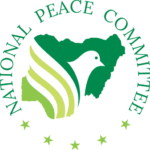Date: December 3, 2024
Venue: Signature Hall, Wells Carlton Hotel, Abuja
By: The Kukah Centre
A Full House at the Crossroads of Faith and Governance
On a crisp Abuja morning, more than a hundred participants gathered at Signature Hall, Wells Carlton, to engage in one of Nigeria’s most urgent conversations — the intersection of Religion and Democracy.
Attendees ranged from Diplomats to Traditional rulers, Legislators to Peacebuilders, Faith leaders to Media figures. They were drawn together by a shared concern: How do we navigate Nigeria’s increasingly complex religious terrain without losing sight of our democratic ideals?
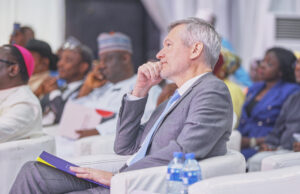
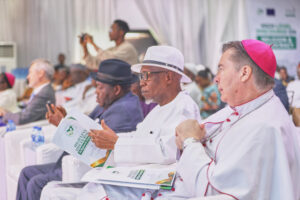
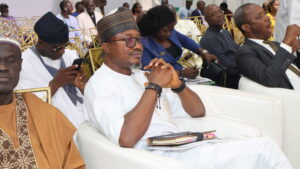
Opening Reflections: A Moral Call
Bishop Matthew Hassan Kukah kicked off the discourse with his trademark blend of clarity and moral urgency. He praised Nigeria’s democratic resilience while cautioning against the misuse of religion in public life. His message was clear ”Religious leaders must lead not just with sermons, but with integrity”.
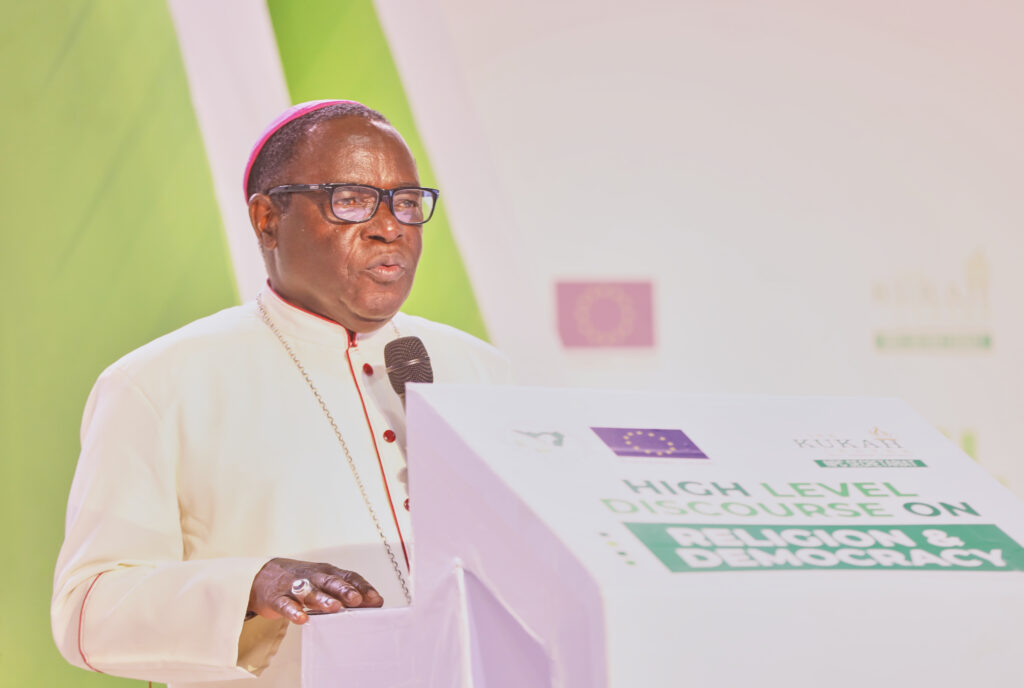
Echoes of Wisdom: Goodwill Messages
Several dignitaries offered powerful reflections:
- Dr. Daniel Shaga Ismaila (Hama Bachama) warned of rising religious conflicts and called for early warning systems, justice, and collaboration.
- Hon. Julius Ihonvbere, representing the Speaker of the House, decried the politicization of religion as a “clear and present danger” to democracy.
- The Emir of Keffi, Alhaji Dr. Shehu Chindo III, encouraged religious leaders to educate followers on civic participation.
- EU Ambassador Gautier Mignot reaffirmed Europe’s commitment to religious freedom and its support for Nigeria’s democratic journey.
- Senator Adams Oshiomhole invoked Gandhi, calling for an end to cycles of hate and for a national embrace of tolerance.
Keynote: Framing the Problem
Two speakers cut deep into the historical and constitutional roots of the problem:
- Majeed Dahiru traced Nigeria’s democratic crises back to post-independence missteps and the 1970s rise of political religion. His stark conclusion: ”We must de-religionize governance and realign politics around shared socio-economic concerns”.
- Dr. Sam Amadi explored the legal contradictions of religious sponsorship in a secular state. From Shariah’s re-introduction in Zamfara to public funds for pilgrimages, he argued, Nigeria has blurred the lines too often and too dangerously.
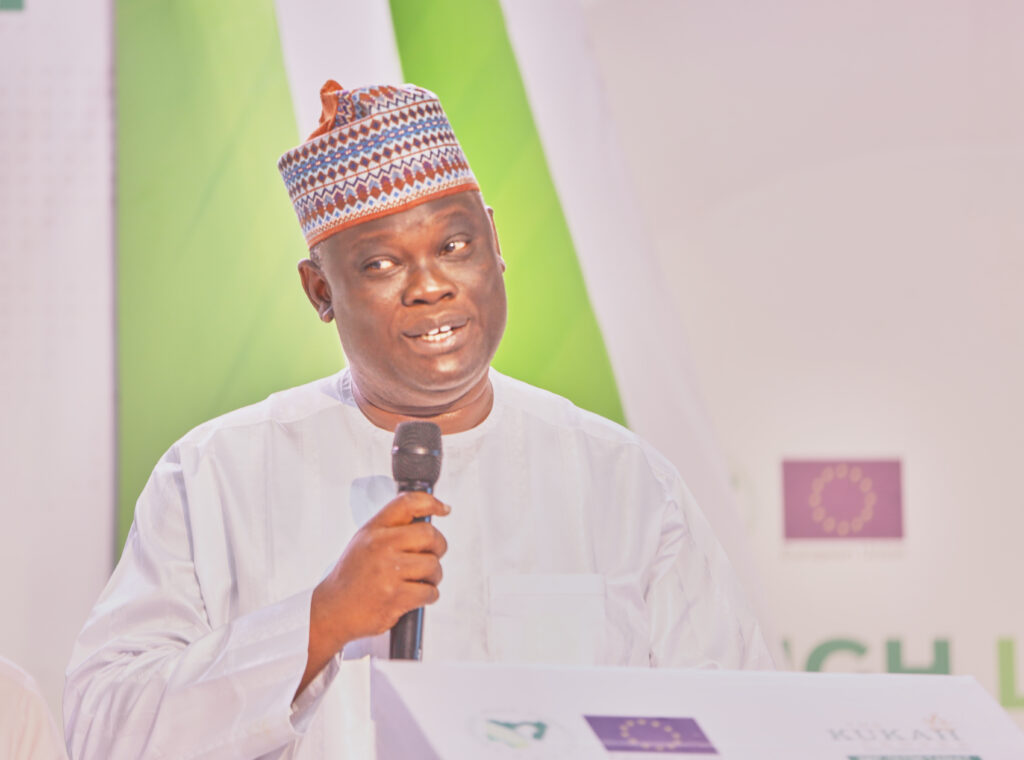
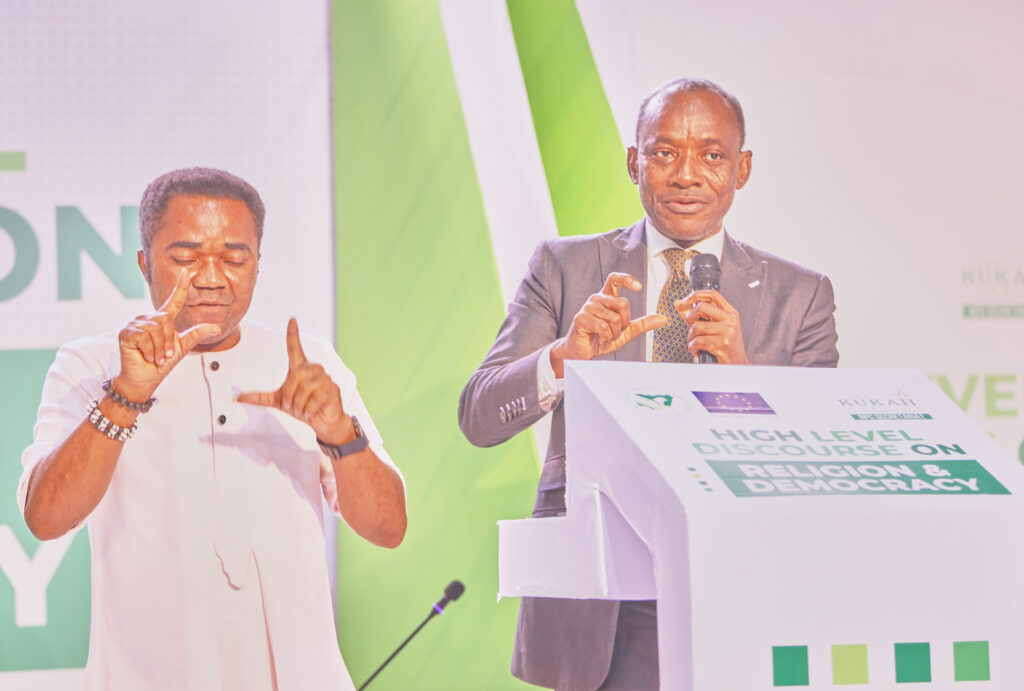
The Panel: Straight Talk on Religion and Governance
Under the deft moderation of Maupe Ogun-Yusuf, panelists — Zainab Suleiman Okino, Rev. Fr. Raymond Aina, Barr. Gloria Ballason, and Sheikh Muhammad Nuru Khalid — dove headfirst into the contradictions of Nigeria’s religious-political reality.
They challenged:
- The overreach of religious leaders into political spaces
- The decay of moral authority among faith figures
- The celebration of materialism over character
- The failure of both clergy and politicians to internalize their own scriptures or democratic ethics
Tough Truths and Honest Findings
The forum didn’t hold back. Participants identified clear systemic failings:
- Religion is being weaponized for political gain
- There’s a lack of interfaith dialogue
- Voter apathy is often tied to fear, not indifference
- Public funds for religious trips violate the constitution
- The North continues to suffer the consequences of politicized religion
A Path Forward: Recommendations with Teeth
The event wasn’t just diagnostic — it was visionary. Some key recommendations included:
- Strip religion out of governance forms — no more boxes for religion or ethnicity on official documents
- Reconfigure Nigeria’s political system — move beyond ethnic and religious lines toward shared national goals
- Stop celebrating prosperity over principle
- Transform worship spaces into centers of dialogue and peace
- Citizens must speak up and act — “say something when you see something”
The High-Level Discourse made it clear that Religion is not the enemy of democracy, but its misuse is. If Nigeria is to move forward, its religious and political leaders must become torchbearers of integrity, not merchants of division.
